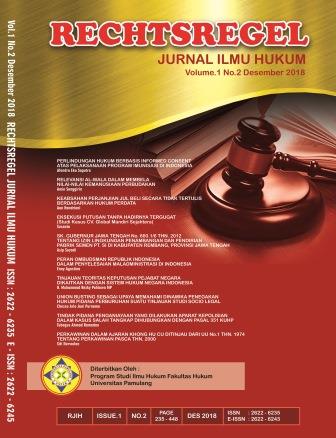Perilaku dan Kode Etik Dalam Bermedia Sosial di Kelurahan Buaran Kota Tangerang Selatan
DOI:
https://doi.org/10.32493/rjih.v7i1.43523Keywords:
Social Media, EnvironmentAbstract
Social media is currently one of the most influential platforms in people's lives. Users of social media come from all walks of life, from young to old. This has an impact on the use of social media that is not in accordance with the code of ethics and deviates so that various problems arise. The development of communicating on social media lately has led to a communication process that has caused public unrest and is detrimental to various parties. The many trends that are developing in the communication process on social media can be seen from how easy it is for people to pour out their anger without thinking about other people's feelings, cyber bullying, blaspheming each other, criticizing each other, contributing to the outbreak of conflicts, cornering and judging others, harming others and so on. It seems clear that there has been a crisis of communication ethics through social media. Social media should be a vessel for a healthy dialogue process in communication so as to create a harmonious relationship. Social media should be a place for a dialogue process that provides space for increasing the welfare of a community as well as a space in order to create a rational and soothing dissemination of ideas. Thus, a study of communication ethics is needed to find what ethical boundaries must be used by communicators and communicants in assessing the techniques, contents and goals of communication on social media. other people's feelings, cyber bullying, blaspheming each other, criticizing each other, contributing to the outbreak of conflicts, cornering and judging others, harming others and others. It seems clear that there has been a crisis of ethics communicating via social media.
References
Alma, Buchari. (2003). Dasar-Dasar Etika Bisnis Islami, Bandung: CV. Alfabeta. Ardiansyah, Panji. (2017). Etika Bisnis – Bagaimana Membangun Bisnis yang Beretika, Yogyakarta: QUADRANT.
Asmaran. (1992). Pengantar Studi Akhlak, Jakarta: Rajawali Press. Bertens, K. (1993). Etika, Jakarta: Gramedia Pustaka Utama.
Bungin, Burhan. (2009). Metodologi Penelitian Kuantitatif, Jakarta: Kencana Prenada Media Group.
Chang William. (2016). Etika dan Etiket Bisnis, Yogyakarta: PT. Kanisius. Creswell, W, John. (2013). Research Design Pendekatan Kualitatif, Kuantitatif, dan Mixed, Yogyakarta: Pustaka Pelajar.
Djakfar, Muhammad. (2012). Etika Bisnis Menangkap Spirit Ajaran Langit dan Pesan Moral Ajaran Bumi, Depok: Plus Imprint Penebar Swadaya.
Fahmi, Irham. (2014). Etika Bisnis Teori, Kasus, dan Solusi, Bandung: Alfabeta. Fahmi, Irham. (2019). Pengantar Ilmu Administrasi Bisnis, Bandung:Alfabeta.
Hamzah, A. (2019). Metode Penelitian Kepustakaan: Kajian Filosofis, Teoritis, dan Aplikatif (Library Research), Jakarta: Literasi Nusantara.
Kamaluddin. (2017). Administrasi Bisnis, Makassar: CV Sah Media.
Keraf, A, Sonny. (1998). Etika Bisnis – Tuntunan dan Relevasinnya, Yogyakarta: Kanisius.
Keraf, A, Sonny. (2002). Etika Lingkungan, Jakarta: Buku Kompas.
Madjid, Nucholish. (1998). Konsep dan Pengertian Akhlak Bangsa, Bandung: Mizan Pustaka.
Nugroho, A. & Arijanto, A. (2015). Etika Bisnis (Business Ethic) Pemahaman Teori Secara Komprehensif dan Implementasinya, Bogor: PT Penerbit IPB Press.
Poespoprodjo. (1999). Filsafat Moral Kesusilaan Teori dan Praktek, Bandung: Pustaka Grafika.
Undang-Undang Informasi dan Transaksi Elektronik UU No 11 Tahun 2008.
Aditya, R. (2015). Pengaruh media sosial instagram terhadap minat fotografi pada komunitas fotografi pekanbaru. Jurnal Fisip, 2, 1-14.
Agustina. (2016). Analisis penggunaan media sosial instagram terhadap sikap konsumerisme remaja di sma 3 samarinda. Jurnal Ilmu Komunikasi, 4(3), 410-420.





